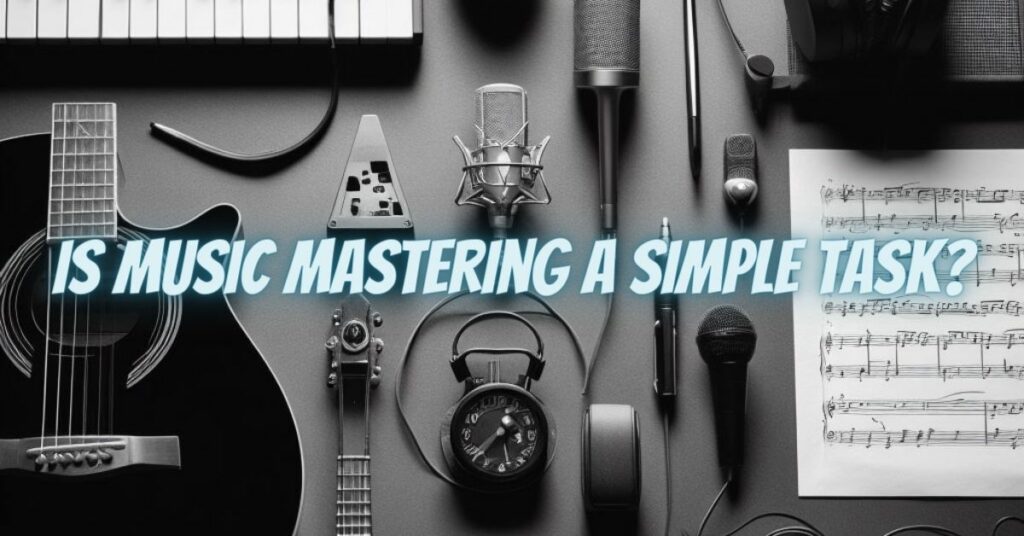Music mastering, the final stage of music production, is often surrounded by an air of mystery. Some may wonder whether it’s a straightforward process that can be easily grasped, or if it requires years of training and experience to master. In this article, we aim to demystify the world of music mastering and explore the question: Is it easy to master music?
The Complexity of Music Mastering
Music mastering is an intricate and specialized field that involves a combination of technical expertise, critical listening skills, and creative finesse. Here are some key aspects that highlight the complexity of music mastering:
- Technical Expertise: Mastering engineers must have a deep understanding of audio equipment, signal processing, and the intricacies of various music formats. They work with advanced hardware and software tools to manipulate audio, correct imperfections, and optimize sound quality.
- Acoustic Environment: Professional mastering studios are acoustically treated to ensure that the engineer hears the audio as accurately as possible. The room’s design, speaker placement, and acoustic treatment play a crucial role in the mastering process.
- Critical Listening: Mastering engineers possess finely tuned ears that allow them to detect subtle imperfections and nuances in the music. They can identify issues related to tonal balance, dynamics, and spatial characteristics.
- Comprehensive Knowledge: Mastering engineers are well-versed in the technical requirements and standards of various music formats and streaming platforms. They ensure that the music meets these standards and sounds its best across different playback systems.
- Creative Decision-Making: Beyond the technical aspects, mastering can involve artistic and creative decisions. Engineers work closely with artists to achieve a specific sonic vision and emotional impact.
Challenges Faced by Aspiring Mastering Engineers
For those interested in mastering music, there are several challenges that can make it a complex endeavor:
- Expensive Equipment: Building or accessing a professional mastering studio requires a substantial financial investment in high-quality equipment, acoustics, and monitoring systems.
- Training and Experience: Becoming a proficient mastering engineer typically involves years of dedicated training and hands-on experience. This includes learning to use complex software and hardware, as well as developing a keen sense of listening.
- Quality Control: Mastering engineers are responsible for quality control, ensuring that the final product meets industry standards. Achieving this level of precision is demanding and requires a high level of expertise.
- Changing Technology: The field of music mastering is dynamic, with ongoing advances in audio technology. Staying up-to-date with the latest tools and techniques is essential for mastering engineers.
Is It Easy to Master Music?
In light of the complexities involved in music mastering, it is safe to say that it is not easy to master music. It is a skill that demands a combination of technical knowledge, artistic sensibility, and a profound understanding of audio. While advancements in technology have made it possible for musicians and producers to attempt DIY mastering, achieving professional results often remains a challenge.
However, it’s important to note that learning the basics of music mastering and applying them to improve your own music is within reach for many musicians and producers. There are educational resources, online courses, and mastering software tools that can aid in the process. Nevertheless, achieving the level of expertise required to compete in the professional music industry is a journey that requires dedication and commitment.
Music mastering is a complex and multifaceted discipline that encompasses both technical and artistic elements. While it may be challenging to master music at a professional level, the art and science of mastering can be explored and understood by those who are passionate about music and willing to invest time and effort in honing their skills. Ultimately, mastering music is an art form that requires dedication, patience, and a commitment to ongoing learning and improvement.


